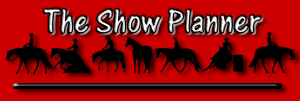A Horse, Of Course (on supplements)
By Don Blazer
The question of whether or not to supplement a horse with vitamins, minerals, herbs, enzymes, amino acids or nutraceuticals will be asked and answered 100,000 times today.
The answer in 99,999 cases will be accepted or rejected strictly on whether or not it was the answer the person asking wanted to hear.
There is no clear, factual answer. Science doesn’t have a single answer; most answers lead to more questions. And most of the time the person asking about supplements didn’t ask and answer the necessary preparatory questions. Is the horse actually lacking in a specific nutrient? How do you know? How do you know if you give a supplement it will work? Are you sure giving the supplement won’t cause more problems than it will cure?
Supplements and nutraceuticals are a way to provide “what is lacking.” So the first question must always be: “What is this horse lacking”?
Observation of the horse is the first diagnostic tool. Are the horse’s eyes bright and clear? Does he have enough energy to perform the exercises being asked? Does he recover from exertion in a reasonable time? Is his coat healthy? Is he the right weight for his size? Be careful answering; most well-cared for horses are overweight.
And note: none of those questions had to do with the horse winning at competition—supplements can’t make up for talent, training and the lack of a champion’s “heart”.
The second diagnostic tool is to learn enough about horse nutrition to know your feeding program is adequate. Get a hay test and know for certain the necessary nutrients are available in the forage. Determine the concentrates to be sure they are correct for the horse’s age, activity and current health status. Weigh the forage and concentrate to be sure they are being fed in proper amounts—if you don’t know what you are feeding, you can’t know what is lacking.
Blood and hair analysis can be helpful, but only helpful. Blood is self-regulating, (it has a strong tendency to remain normal) so it is a real challenge to determine nutritional problems. With hair analysis normal mineral ranges have not been determined and a universal standard has not been adopted; again the results may only be helpful.
Before trying supplements, try a consistent, effective de-worming program. Check with your veterinarian and work out the details based on the circumstances in your area.
Absolutely guarantee your horse is getting all the clean, fresh cool water he desires.
Have the horse’s teeth checked (and floated often enough) for health and ability to chew comfortably.
Now you can consider what might be lacking.
The Food and Drug Administration’s Center for Veterinary Medicine regulates and enforces the laws regarding all feed ingredients, additives, supplements and drugs added to horse feed.
Learn to read a feed tag; know what you are feeding. Terms on feed tags include: “GRAS” (generally recognized as safe). “Food” (an article that provides taste, aroma or nutritive value; GRAS (for example: hay and grain). “Food additive” (a substance that directly or indirectly becomes a component or otherwise affects the characteristics of food.) “Drug” (any substance, food or non-food that is used to treat, cure, mitigate or prevent a disease.) If a nutrient is intended to nourish the body it is a food; if it affects the characteristics of the food, it is an additive. If the substance is used to treat an illness, it is a drug.
The most popular nutraceuticals are those claiming to improve joint health.
Glycosaminoglycans (CAG’s), also known as mucopolysaccharides, are made up of natural components of cartilage and connective tissue and are present in all body tissue and fluids. Hyaluronic acid, chondroiton sulfate, dermantan sulfate, keratan sulfate, heparan sulfate and heparin make up the family of GAG’s.
While these supplements are very popular and the claims for fantastic results abound, there is seldom any proof. In most cases, there is no baseline to determine degree of pain felt by the horse or joint function loss. Without a baseline, the results are a guess, a hope and a belief.
Fat supplements to improve coat and promote weight gain are also popular. With these supplements, the results are often very observable…you can see the horse’s coat has improved and it is easy to determine weight gain. Also seen frequently with such supplements are contracted tendons, joint deformations and hoof problems.
Vitamin supplements are popular, but often for the wrong reason. Vitamins do not provide energy as many horse owners believe. Vitamins do act as a catalyst, regulating the horse’s ability to utilize other nutrients.
When the horse is getting a well-balanced, nutritious diet, vitamin supplementation is virtually never needed. On the other hand, salt (a mineral) is almost always needed. The best way to provide the salt is to feed loose salt, free choice.
Other minerals seldom need to be supplemented, unless, of course, they are lacking in your area or your horse’s daily diet.
If you are feeding a supplement to provide for what is lacking, you are doing the right thing.…..if you are feeding a supplement as a quick, convenient way to “insure” your horse’s health, you’ve bought the wrong policy.
Visit A Horse, Of Course at www.donblazer.com

